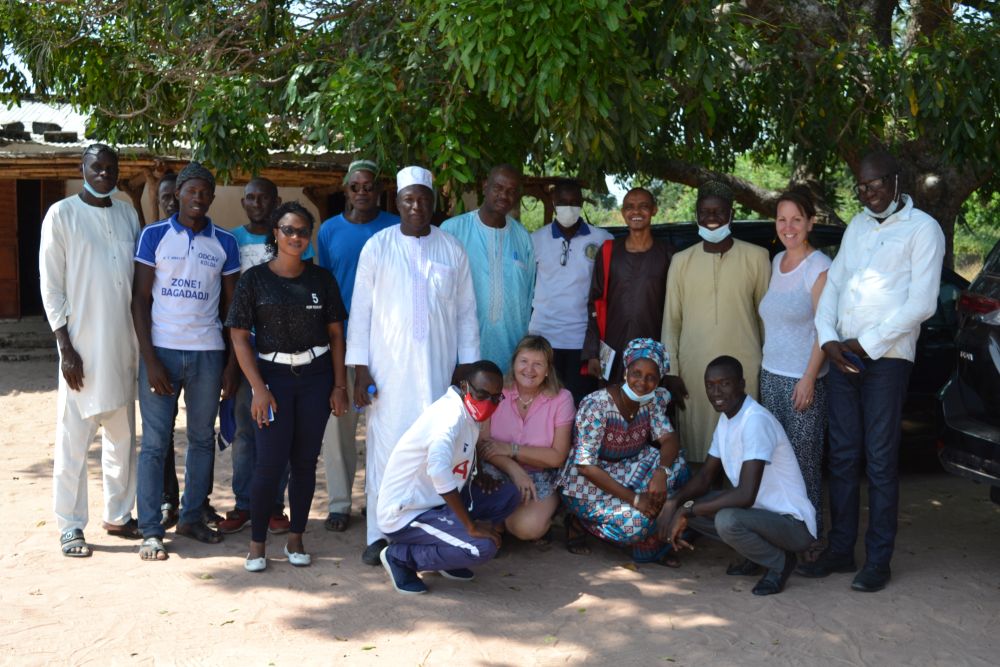Make Your Experiences Count. They Can Change the World.
LET’S BRING ALL OF OUR KNOWLEDGE AND EXPERIENCES TOGETHER.
TOGETHER WE KNOW MORE. TOGETHER WE ACHIEVE MORE. TOGETHER WE DO BETTER.
LET’S BRING ALL OF OUR KNOWLEDGE AND EXPERIENCES TOGETHER.
TOGETHER WE KNOW MORE. TOGETHER WE ACHIEVE MORE. TOGETHER WE DO BETTER.
Published: December 1, 2021
After almost 3 years, I am very lucky to be back visiting our partner region in Senegal. I really enjoy being able to meet colleagues and partners face to face again. Besides, I have visited a lot of different partner projects already and had some very interesting conversations. One of them I wanted to share with you. I talked to Diénabou Baldé from our partner organisation OFAD about her job, the biggest challenges for women in the region, strategies to overcome them and even got to listen to some very exciting success stories and to her positive vision of the future. Keep on reading to find out more.
How long have you been working at OFAD?
I started as an intern (animator – field worker) in February 2018 until 2019, then worked as an assistant for Monitoring & Evaluation in 2020 and was appointed as Gender Focal Point from 2021 onwards.
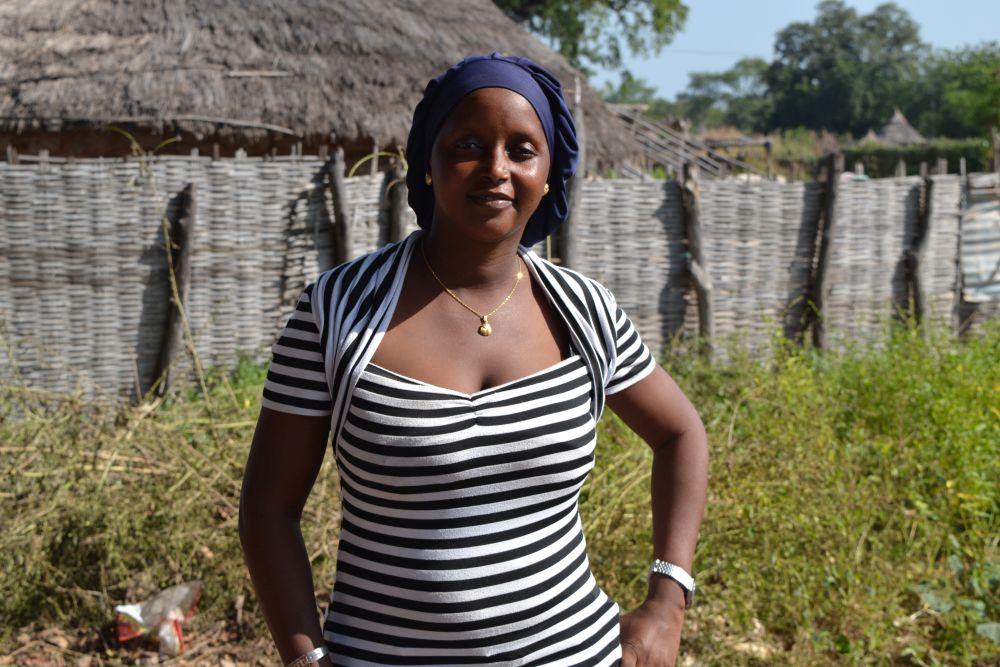
Can you tell us a bit about your role, your position?
I now work full time as a Gender Focal Point on all projects at OFAD. I aspire to ensure that gender equality is considered in all projects, from planning to implementation and evaluation of projects. I also want to make sure that gender is not neglected within our organization and therefore advocate for women. Gender-sensitive language is an important concern for me – producer and female producer, for example, and I am also consulted when recruiting new staff in order to pay attention to gender equality. Besides, I carry out trainings with target groups on gender equity, women’s leadership and the role of women in the community, grassroots organizations.
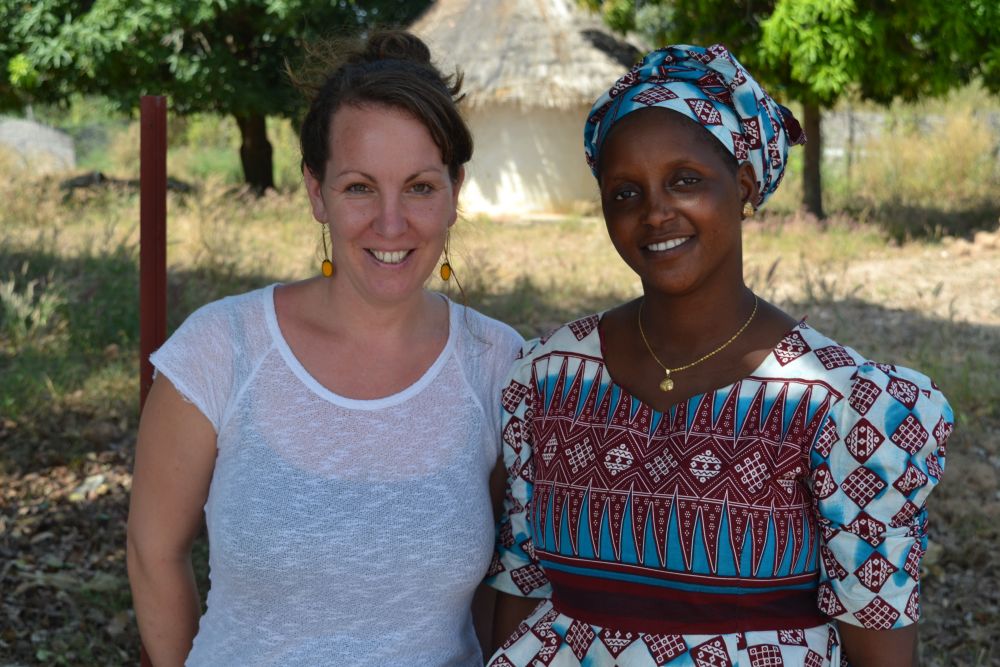
What are the biggest challenges that women in the Kolda region face?
Oppression and dependency are big challenges. Women are very dependent on men (husband, father, head of household, etc.), they cannot do any activities without asking their husband for permission, sometimes they are not even allowed to leave the house without his permission.
For example, among the Mandinka ethnic group, a proverb says: the man has the keys to the woman’s paradise or among the Pheul, an old proverb says: if you want your children to be blessed, you must be submissive to your husband.
Among the Mandinka, women work a lot, they do everything in the household, take care of the children and work on the side. They think that they must always please their husbands so that the husband is not dissatisfied in any way, otherwise the wife will not enter paradise.
Another problem is gender-based violence, harmful practices such as Female Genital Mutilation (FGM), child marriage, but also violence against women in our region in Senegal.
What approaches or strategies is OFAD pursuing towards more gender justice, empowerment of women, measures against gender based violence?
A lot of sensitization work, also theater work, elaboration of sketches for sensitization – especially with marabouts, religious leaders, circumcisers, griots, village chiefs etc.. At the beginning it was not easy, many insist on the old role models and practices. But by explaining the effects of the harmful practices – especially on health (such as with FGM), the awareness-raising efforts have met with more understanding.
One theater performance was attended by a circumciser who burst into tears because she understood through the play that the death of one of her granddaughters was caused by previous circumcision. Until then, she had not known this. She has not performed any circumcisions since that day.
Another important point is the autonomization of women through economic activities, initiatives, such as supporting women to produce local soaps, contacting traders to buy the raw material for soap production. But above all, advocacy work with men but also community representatives for access and control of land for women, as well as for agricultural inputs, is essential.
Access to land for women is improving, often they get a quarter or half a hectare, but control is very difficult. It is still the head of the family who decides what happens to the land. If it is needed elsewhere, the women can no longer work it.
Women mainly grow rice for their own consumption. However, the rice field is not considered part of the family land, and priority is given to cultivating the fields for corn, millet, and other grains with the tools available. In general, however, there are not many tools available for family farming in the villages where OFAD operates.
Through the economic empowerment of women, they also have more say and are more often involved in decision-making.
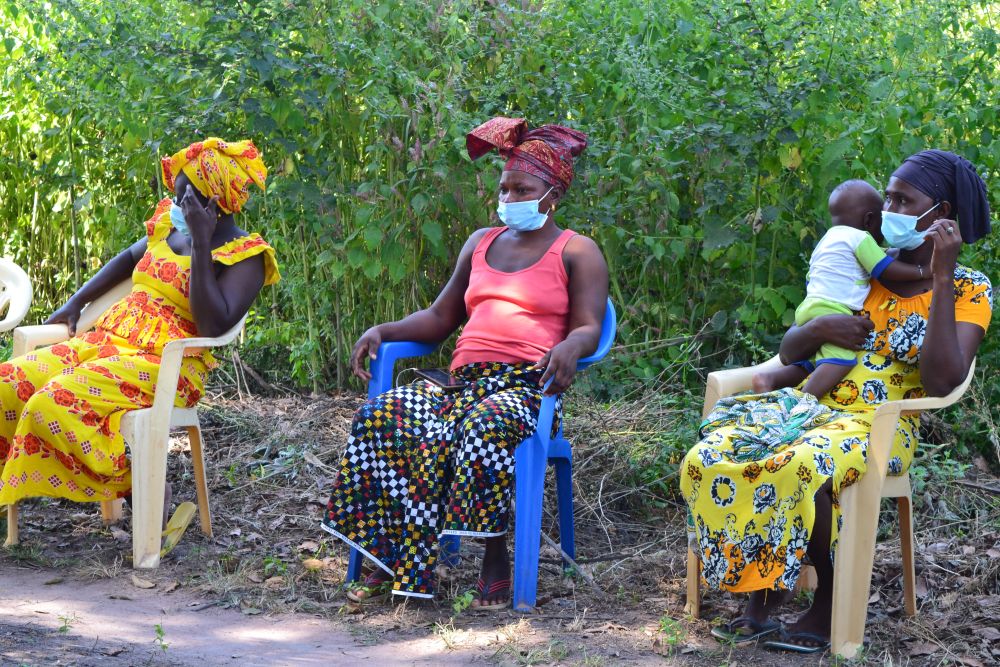
Are there any success stories in this area?
You can already see changes in Kolda. One example is my own case. As a little girl I did everything that boys do: Playing soccer, riding a bike, riding horses and my relatives always said that I will never find a husband.
Now, however, the relatives say that I set a good example and that their daughters and granddaughters should follow my example. I went to Dakar to study, I have a husband and 2 children, I work at OFAD and my husband supports me. He has never said anything when I attend trainings for 3 days and meanwhile he looks after the children and takes care of the household. In our marriage we share the tasks, also in the household and raising the children. He is a teacher.
I am also running for the next local elections and am first on the list. I would like to have a say in what our tax money is used for and, above all, to contribute to the needs of women and girls. Because if only men and especially women who can’t read and write vote, then nothing will change for women. I believe I have a role model effect on the women and girls here in the region.
What do you like most about your work?
What I love about my work is experiencing and seeing the development with the women and men, with the communities together. I love it when the women and men step up and make a difference.
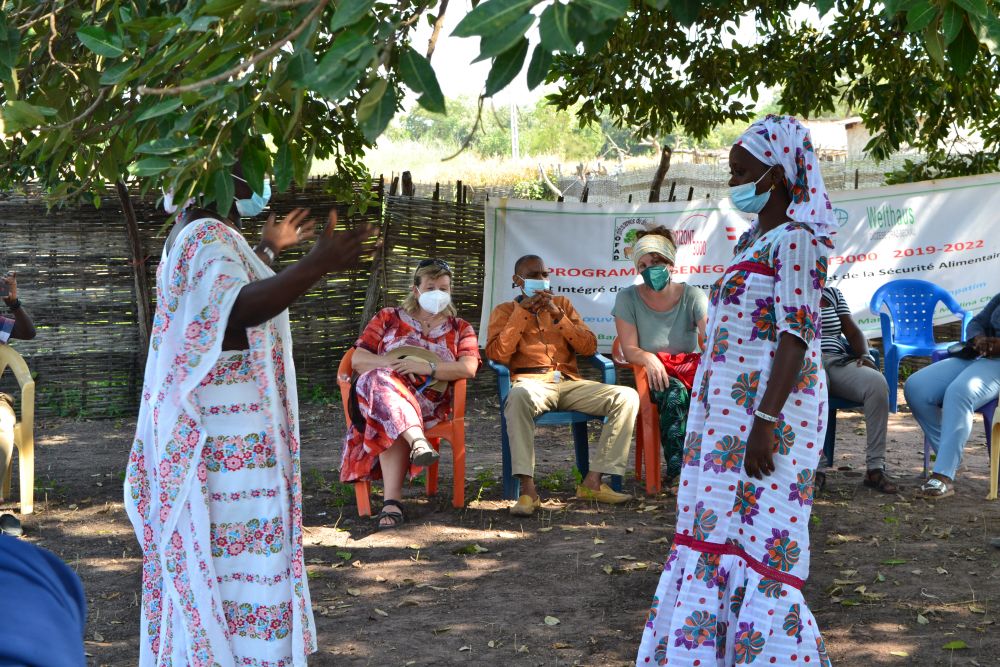
Do you have a vision?
A society that is autonomous and aspirational, especially the local communities and villages. It would be important to create more jobs for women, women can do everything that men can do, yet they occupy very few directorial or management positions in government agencies. This should change, because when women are in leadership positions, they can again empower and advocate for other women.
